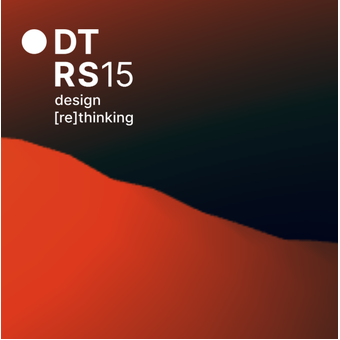Register
Event Details
Deadlines
Deadline for Short Paper and Pictoral: 12 January 2026
Notification of Acceptance: 27 February 2026
Final Submission Deadline for Short Paper and Pictoral: 6 April 2026
Conference dates 17, 18 and 19 June 2026
Final Submission Deadline for Springer full paper: 15 July 2026
In a time marked by technological disruptions, ecological collapse, and systemic inequalities, critically rethinking Design Thinking is not just timely — it is necessary. The Design Thinking Research Symposium invites researchers, practitioners, and educators to challenge the assumptions that have shaped this approach, exploring the plurality of practices, epistemologies, and impacts of design today. We welcome contributions that not only evolve the discourse, but interrogate it: what kinds of worlds has Design Thinking helped construct — and which ones has it silenced? What alternative ways of thinking and doing design might open paths toward more just, ethical, and interdependent futures? The following thematic tracks serve as entry points for this plural and collective reflection:
1. The Evolution (and Generations) of Design Thinking
This sub-theme invites a critical reassessment of Design Thinking, not as a linear progression, but as an arena of epistemic disputes, appropriations, and resistances. Across its history, different framings have emerged: from reflective practice (DT 1.0), to innovation method (DT 2.0), to systemic and sustainability-oriented approaches (DT 3.0), and now to a debated DT 4.0, where AI may act as a catalyst for new forms of co-design between human creativity and machine intelligence. We welcome contributions that interrogate these framings and their exclusions: How has Design Thinking reproduced extractivist logics, quick-fix solutions, or user-centred yet planet-disconnected approaches? What alternative genealogies, disciplinary, cultural, or geographic, might challenge or enrich the paradigm? We encourage both critical and imaginative perspectives, exploring neglected pasts and speculating on possible futures of Design Thinking.
2. The Role of AI and Ethics
The increasing presence of AI in design processes demands more than technical integration — it calls for ethical, epistemological, and ontological debate. This sub-theme shifts the focus from AI as tool to AI as co-agent: how does it reconfigure creativity, authorship, judgement, and care in design? What moral scripts are embedded in algorithmic systems, and how can designers resist an uncritical automation of decision-making? We invite reflections on limits of delegation, risks of opacity, and the potential for ethics of restraint, care, and coexistence. Contributions that situate AI within wider ecologies of power, inequality, and interdependence are especially welcome — questioning not just what we can create, but what we should, and with what consequences.
3. Sustainability and Value Creation
In a world facing climate collapse, the question is no longer “how to innovate,” but how to repair, regenerate, and redirect design towards sustaining life. This sub-theme challenges dominant models of value — centred on growth, efficiency, and profit — and proposes alternative matrices: use value, environmental justice, interspecies reciprocity, and the commons. What forms of Design Thinking are being reimagined in light of circular economies, regenerative systems, or non-Western cosmologies? How might design practices embrace ecological limits, redistribute power, and cultivate the art of enough? We invite work on situated, post-capitalist, or transition design practices that reposition design from a contributor to crisis to an ally of regeneration.
4. Education and Change
More than an instrumental skill, Design Thinking can be a transformative language — or a reductive pedagogy. This theme explores the role of education in (re)shaping how we learn, collaborate, and act in the world. How can we prepare designers to think critically, act responsibly, and imagine plural alternatives? What pedagogical approaches cultivate deep listening, radical empathy, systems thinking, and relational ethics? And what risks emerge from the uncritical generalisation of Design Thinking across disciplines? We invite perspectives from care pedagogies, transformative learning, participatory methods, or curricular decolonisation — opening space for education that not only develops competencies, but cultivates consciousness and commitment.
Submission type
For this conference, the short papers and pictorials will be accepted according to the templates, download below, and submitted by January 12th. Abstracts will not be accepted.
Templates links:
Publications
The conference has two separate publications: Proceedings and Springer publication.
The proceedings include short papers and pictorials. This publication consists of all the papers selected to be presented at the symposium.
Twenty articles will be selected for publication in the Springer edition. These will be transformed into full papers and formatted according to a template to be provided later.


